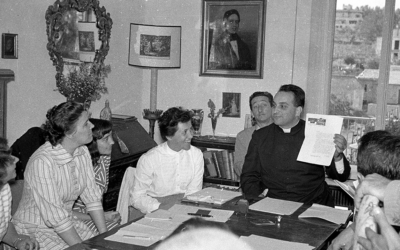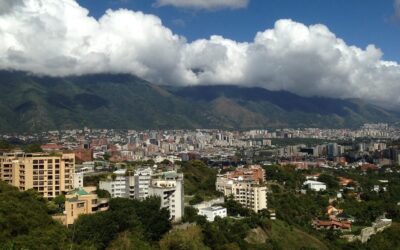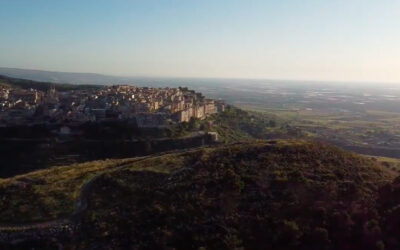 “Put aside your own ideas, preconceptions and political convictions and learn again to respect your neighbour”. A style of politics which brings together peace and justice, and the common good is the only way to meet the aspirations and expectations of young people. Laurent Moesching, a 22 year old student and president of the 14-strong committee behind the event, welcomed on their behalf the challenge laid down in a message from Chiara Lubich, who began the Movement for Unity in Politics (Focolare). “If you have the courage to listen and to work in common, a new style of political life will emerge”, she wrote. This is an approach eagerly awaited by young people, something evident from the lively dialogue and exchange of experiences with the politicians present at Martigny on August 25 and 26 2007. There were 300 participants, including 100 young people and politicians involved at national, canton, and local level. A moving experience from the Middle East: “Hand in Hand”. This demonstrated how listening and working together are possible even in situations of deep conflict. Sonia Chason and Nebal Bakoey described their involvement in the project, “Hand in Hand” in Jerusalem, a school based on the idea that both Arab and Israeli cultures have important values. Each class has an Arab and an Israeli teacher who prepare the programmes of the courses. Nebal Bakoey explained, “Respect is fundamental to all our relationships. This does not mean that we always have the same opinion, but we give importance to the things we discover together”.
“Put aside your own ideas, preconceptions and political convictions and learn again to respect your neighbour”. A style of politics which brings together peace and justice, and the common good is the only way to meet the aspirations and expectations of young people. Laurent Moesching, a 22 year old student and president of the 14-strong committee behind the event, welcomed on their behalf the challenge laid down in a message from Chiara Lubich, who began the Movement for Unity in Politics (Focolare). “If you have the courage to listen and to work in common, a new style of political life will emerge”, she wrote. This is an approach eagerly awaited by young people, something evident from the lively dialogue and exchange of experiences with the politicians present at Martigny on August 25 and 26 2007. There were 300 participants, including 100 young people and politicians involved at national, canton, and local level. A moving experience from the Middle East: “Hand in Hand”. This demonstrated how listening and working together are possible even in situations of deep conflict. Sonia Chason and Nebal Bakoey described their involvement in the project, “Hand in Hand” in Jerusalem, a school based on the idea that both Arab and Israeli cultures have important values. Each class has an Arab and an Israeli teacher who prepare the programmes of the courses. Nebal Bakoey explained, “Respect is fundamental to all our relationships. This does not mean that we always have the same opinion, but we give importance to the things we discover together”.  The weakest pillar is the most important one. In the main talk, Lucia Fronza Crepaz, president of the MppU (Movement for Unity in Politics) at the international level, presented universal fraternity as the “best category for the inspiration of political action”, and the basis for civil life in a multicultural society, using a striking image. “To test the strength of a bridge, it is important to assess the strength of the weakest column, not the strongest”. The weakest members of our society must have priority, “not out of pity”, she added, “but because the poor, when left to themselves, have no voice in democratic systems” Pop music after the talks. Politics-party: that is how this meeting was announced. After the politics, came the party. The talks gave way to pop music, and debates gave way to dance. The organization was in the hands of young people, and the symbiosis between politics and “party” was a great success.
The weakest pillar is the most important one. In the main talk, Lucia Fronza Crepaz, president of the MppU (Movement for Unity in Politics) at the international level, presented universal fraternity as the “best category for the inspiration of political action”, and the basis for civil life in a multicultural society, using a striking image. “To test the strength of a bridge, it is important to assess the strength of the weakest column, not the strongest”. The weakest members of our society must have priority, “not out of pity”, she added, “but because the poor, when left to themselves, have no voice in democratic systems” Pop music after the talks. Politics-party: that is how this meeting was announced. After the politics, came the party. The talks gave way to pop music, and debates gave way to dance. The organization was in the hands of young people, and the symbiosis between politics and “party” was a great success.
Don’t give in to individualism
Don’t give in to individualism




0 Comments